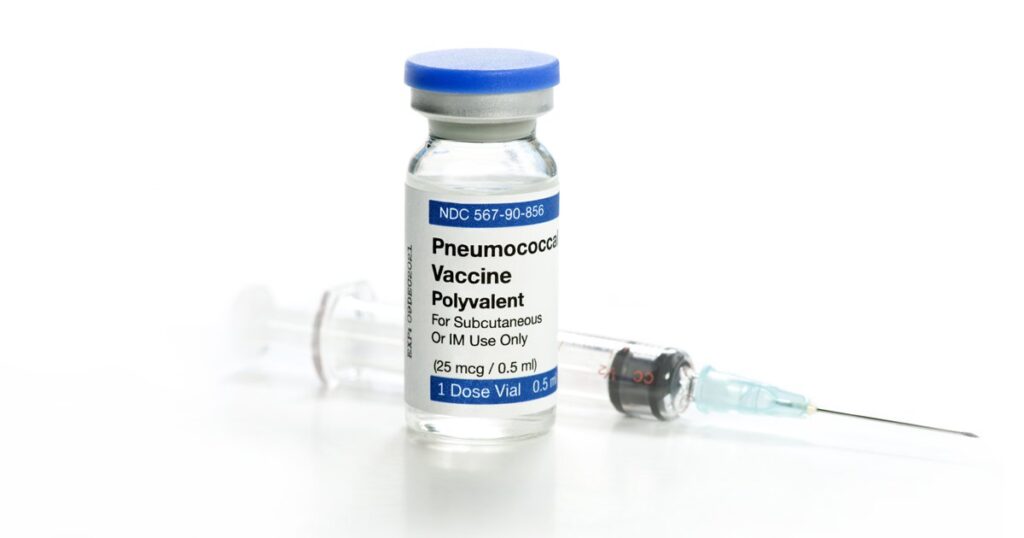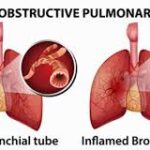Streptococcus pneumoniae (S. pneumoniae) is a leading bacterial pathogen responsible for severe respiratory infections, including pneumonia, bronchitis, and invasive diseases like meningitis and bacteremia. It poses a significant health risk, especially for vulnerable populations such as young children, the elderly, and individuals with chronic medical conditions.
Vaccination against S. pneumoniae plays a critical role in reducing the incidence of pneumococcal diseases and protecting at-risk individuals from the severe complications associated with these infections.

Types of Pneumococcal Vaccines
The two primary vaccines used to prevent Streptococcus pneumoniae infections are the Pneumococcal Conjugate Vaccine (PCV13) and the Pneumococcal Polysaccharide Vaccine (PPSV23). Each vaccine offers protection against different strains of the bacterium and is recommended based on age and underlying health conditions.
Pneumococcal Conjugate Vaccine (PCV13)
PCV13 provides protection against 13 serotypes of S. pneumoniae, which are responsible for the majority of severe pneumococcal diseases in children. It is commonly administered to infants, children, and high-risk adults.
- Recommended for: Infants, children under 5, and adults aged 65 years and older or those with compromised immune systems.
- How it works: The vaccine uses a conjugated form of the bacterial capsular polysaccharide, enhancing the immune response.
Pneumococcal Polysaccharide Vaccine (PPSV23)
PPSV23 protects against 23 serotypes of S. pneumoniae and is designed for individuals at high risk for pneumococcal disease, including the elderly and adults with chronic conditions.
- Recommended for: Adults 65 years and older, individuals with chronic illnesses such as diabetes, heart disease, or lung disease, and those with weakened immune systems.
- How it works: PPSV23 is a polysaccharide-based vaccine, triggering a protective immune response without conjugation to a carrier protein.
Importance of Pneumococcal Vaccination
Pneumococcal infections can lead to serious complications, including death, especially in vulnerable populations. By administering the pneumococcal vaccine, we can significantly reduce the occurrence of pneumonia, meningitis, and other invasive diseases caused by S. pneumoniae.
Health Benefits of Vaccination
- Reduced risk of pneumonia: Pneumococcal vaccination decreases the chances of developing pneumococcal pneumonia, a major cause of morbidity and mortality.
- Protection against invasive diseases: The vaccine prevents meningitis, sepsis, and other life-threatening conditions caused by S. pneumoniae.
- Lower healthcare costs: Widespread vaccination can reduce hospitalizations and medical expenses associated with pneumococcal diseases.
- Herd immunity: Widespread vaccination decreases the transmission of S. pneumoniae in the community, protecting those who may be unable to receive the vaccine.
Who Should Receive the Streptococcus pneumoniae Vaccine?
Vaccination against S. pneumoniae is recommended for several high-risk groups, as well as for general public health.
Children
The PCV13 vaccine is administered as part of routine childhood immunizations. It is given in a series of doses, typically at 2, 4, 6, and 12-15 months.
- Risk factors for children: Premature birth, chronic medical conditions (e.g., heart disease), or a weakened immune system.
Older Adults
The elderly, particularly those aged 65 and above, are at higher risk for pneumococcal diseases. Both the PCV13 and PPSV23 vaccines are recommended for adults in this age group.
- Vaccine schedule for adults: The PCV13 vaccine is given first, followed by the PPSV23 vaccine 6-12 months later.
Immunocompromised Individuals
People with weakened immune systems—due to conditions such as HIV/AIDS, organ transplants, or cancer treatments—are at greater risk for pneumococcal infections. Both PCV13 and PPSV23 vaccines are recommended.
- Vaccine administration: This group may receive both vaccines earlier than the standard schedule, depending on their age and health status.
Pneumococcal Vaccination Schedule
The pneumococcal vaccine schedule depends on age and health conditions. Here is a general guide for adults and children:
For Infants and Children
- PCV13: Given as part of routine childhood immunization at 2, 4, 6, and 12-15 months.
- PPSV23: Not typically recommended for children, but may be given to children with specific medical conditions, such as sickle cell disease or immunodeficiency.
For Adults
- PCV13: Administered once for adults 65 and older or those with high-risk conditions.
- PPSV23: Administered once for adults 65 and older, 6-12 months after the PCV13 vaccine, or immediately for individuals with high-risk conditions.
Special Considerations
- Immunocompromised individuals: May require both vaccines sooner or additional doses based on individual risk.
- Pregnant women: Pneumococcal vaccines are generally not recommended during pregnancy unless medically necessary.
Vaccine Side Effects and Safety
The pneumococcal vaccine is generally well-tolerated, with side effects being mild and temporary. Common side effects include:
- Pain or redness at the injection site
- Mild fever
- Fatigue
- Muscle aches
Serious side effects are rare, but any allergic reactions should be addressed promptly. It is important to discuss any concerns with a healthcare provider before vaccination, especially for those with severe allergies or a history of anaphylaxis.
Challenges in Pneumococcal Vaccination
While pneumococcal vaccination has proven to be highly effective, there are challenges in ensuring widespread coverage:
- Vaccine hesitancy: Misinformation about vaccines can lead to reluctance, especially in the elderly and at-risk populations.
- Access to healthcare: Some individuals may have limited access to healthcare services, impacting their ability to receive vaccination.
- Global disparities: In low-resource settings, pneumococcal vaccines may be less accessible, contributing to higher rates of pneumococcal disease.
The Streptococcus pneumoniae vaccine is a cornerstone of public health, significantly reducing the incidence of life-threatening pneumococcal diseases. By vaccinating individuals at risk—particularly infants, the elderly, and those with underlying health conditions—we can prevent infections, reduce healthcare costs, and save lives. As vaccination efforts continue to expand globally, it is essential for healthcare professionals to emphasize the importance of immunization and ensure access to these life-saving vaccines for all populations.

